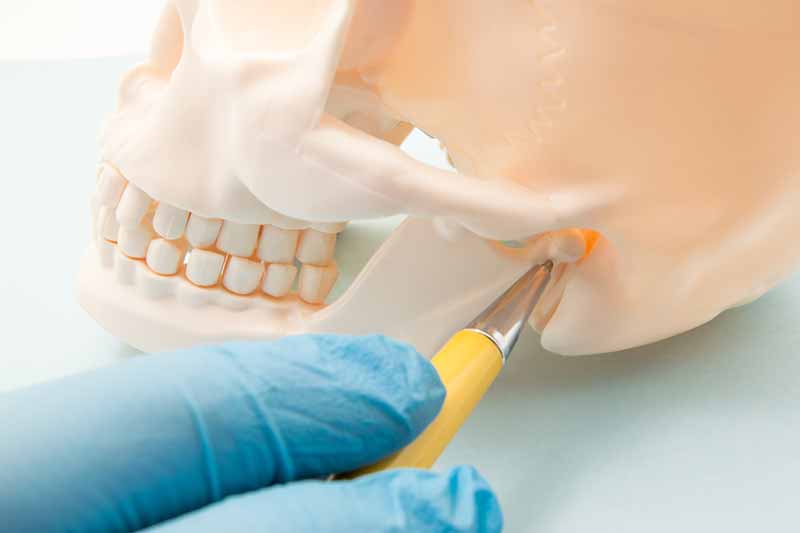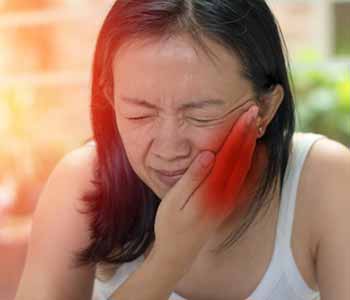
 One of the most common indicators of TMJ disorder is a clicking sound in the joint, which is caused by the disks that lie between the ball and socket. The sound is often loud enough to be heard by others and many individuals report that they can feel the clicking when they place their fingers over the joint. The clicking sound itself isn’t enough to necessitate treatment, but when it is accompanied by pain or the inability to properly move the jaw, it is time to schedule an evaluation with your Brentwood, CA dentist, Dr. Alkhoury.
One of the most common indicators of TMJ disorder is a clicking sound in the joint, which is caused by the disks that lie between the ball and socket. The sound is often loud enough to be heard by others and many individuals report that they can feel the clicking when they place their fingers over the joint. The clicking sound itself isn’t enough to necessitate treatment, but when it is accompanied by pain or the inability to properly move the jaw, it is time to schedule an evaluation with your Brentwood, CA dentist, Dr. Alkhoury.
Other signs that you may have TMJ disorder are:

X-rays will also be taken to evaluate the position of the jaw and the teeth.
To schedule your TMJ evaluation, call 925-344-5296.

 Audrey T.
Audrey T.
 "
Dr Alkhoury is wonderful! He took great care of my 5 year old daughter. He and his assistant made my daughter feel very comfortable. She is wanting to come back to the dentist for her next check up already. Highly recommend! They are the best at Brentwood Family Dental. Thank you Dr Alkhoury!!!
"
"
Dr Alkhoury is wonderful! He took great care of my 5 year old daughter. He and his assistant made my daughter feel very comfortable. She is wanting to come back to the dentist for her next check up already. Highly recommend! They are the best at Brentwood Family Dental. Thank you Dr Alkhoury!!!
"